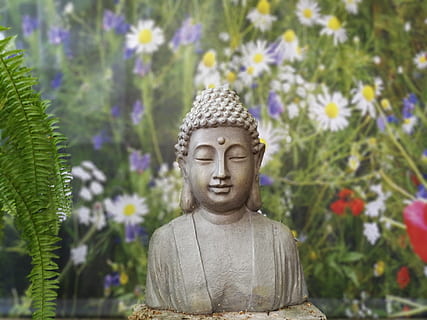Karma and Reincarnation: Cosmic Consequence, or Cosmic Crap?

Karma and reincarnation are the judges in the cosmic judicial system. How do one’s everyday actions affect their sentence?
May 20, 2022
Karma, in Hinduism and Buddhism, means the sum of a person’s actions in this and previous states of existence, viewed as deciding their fate in future existences. What goes around, comes around. Believers in Karma and the process of reincarnation have the belief that the universe keeps a watchful eye over civilization, and consequences will come knocking when justice needs to be served.
People do bad things everyday, but this does not necessarily guarantee someone will come back as a garbage can in their next life if they forget to tip. Karma can be on a much smaller scale. Daily occurrences and interactions can come back around to bite with the right attitude. When asked why he believed in Karma, senior Warren Fogleman states, “Because I see it happen everyday…I’ll see someone act like a jerk to someone, or do something rude and it’ll come right back to them.” Same-day shipping, one might say. On Season 2 Episode 19 of the show Parks and Recreation, the characters trick the office joke, Jerry Gurgich, into doing a task none of them want to do. While he is out, he gets mugged. His boss Leslie says, “This is on us. It’s karma.” Co-worker Tom Haverford replies, “Wouldn’t it be karma if we were the ones that got mugged?… That’s how pathetic Jerry is. He can’t even get karma right.” Maybe this goes to show that the hammer of justice does not always hit the right person.
Reincarnation originated with Jewish mystics of ancient times, who all believed in the “immortal soul.” This means that no matter the vessel, the characteristics and aura remain constant. When children are mature or worldly for their age, adults say they have an “old soul,” but how many past lives does one have to acquire to begin their life with an old soul? One, one hundred? Junior Emily Holt says, “I believe in reincarnation because I think the intellectual and physical similarities between generations of people who aren’t related can’t be a coincidence.” In Hinduism, the end goal of reincarnation, a major pillar of the religion, is to reach the pinnacle of human experience. This means mastering all aspects of virtue, prosperity, and happiness. It can take many lives to achieve nirvana, and when one is a bad person along the way, it takes even longer. So, be kind to others, your next lives will be thankful.
For those who do not buy into the cosmic judicial system, normal human consequence is the cause of karma. When asked if he believed in karma, sophomore Turner Challgren replied, “No, because like if you kill someone, something bad is gonna happen to you. Like going to jail. That’s not karma, that’s justice.” In Christianity, there are brief references of rebirth, but the aspect of individuality in one’s soul is very emphasized. Only 25 percent of Christians believe in reincarnation out of the 2.4 billion globally. One of the downfalls of reincarnation is that proof is hard to come by. Those who go around claiming to have been Marilyn Monroe in their past lives are not likely to be granted credibility, even if they do go around singing happy birthday to other people’s husbands.
All in all, the secret of the universe’s true involvement in the lives of humans will remain beyond the sky. But in the meantime, it is nice to have hope that middle school bullies and bad tippers will get their cosmic boot eventually.











